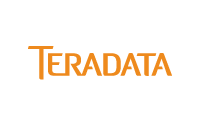Lessons learned from BI rollout
European retailer Metro Cash and Carry offered some advice from their implementation of business intelligence across 28 countries.


European wholesaling firm Metro Cash and Carry shared lessons learned after rolling out data warehousing and business intelligence (BI) across 28 countries at the Teradata Partners conference in Las Vegas.
Ten years ago, the wholesale outlet firm had just 500 GB of space in its data warehouse, which was accessed by just 50 users for an average 100 queries a day. Now, their system runs 20,000 queries a day for 20,000 users over their 25 TB system.
In 2003, the company had BI in just three countries. In the three and a half years since expansion, they've added 25.
"In three and half years of deployment, we learned a lot," said head of business solution centre business intelligence Oliver Isenberg. "We made a lot of mistakes."
He laid out some lessons learned from their massive project. Before starting a move to data warehousing or rolling out a BI project, he said the right people are key. "Get professionals, they know where to start," he advised.
Once the people are in place, they need to look to change the culture of data analytics in the company. BI requires a different approach than simply collating statistics or upgrading reports, he said. "You must concentrate that you get information out of it and put it into action," Isenberg said.
But there's no point taking action unless the data quality is sound. "With a data warehouse, these [issues] will come up, and you must solve them," he said. Assuring Metro's data quality throughout the countries involved in the project took between three to nine months, he said.
Get the ITPro daily newsletter
Sign up today and you will receive a free copy of our Future Focus 2025 report - the leading guidance on AI, cybersecurity and other IT challenges as per 700+ senior executives
When working across different countries, Isenberg advised keeping as much as possible local. "It's not a corporate project, it's a country project," said Isenberg. Locally-based employees "know best where the low hanging fruits are."
The same applies for data protection issues, which was complicated for Metro because of the many countries they operate in. The only way is to take each country as an individual case. "We implemented every country according to local data protection laws, verified by local lawyers," he said.
He stressed a common theme heard throughout the conference: that business is the focus, not IT. "Without top management support, it will not work," Isenberg stressed. "Business is the key, not the system... the business user is the one who will make money out of it."
But he added that the IT side of a company has a big role in teaching business users how to make the most of BI and the new functions which constantly evolve. Indeed, he said power users will be the ones most likely to maximise the potential of BI. "A few professional users will generate the biggest [return]," Isenberg said. It won't be the basic users looking for day-to-day reports, but those doing specialised, deeper digging who will benefit the company the most, he said. Because of that, any firm using BI should make sure to have such power users distributed across all aspects of the business, he added.
Freelance journalist Nicole Kobie first started writing for ITPro in 2007, with bylines in New Scientist, Wired, PC Pro and many more.
Nicole the author of a book about the history of technology, The Long History of the Future.
-
 Cleo attack victim list grows as Hertz confirms customer data stolen
Cleo attack victim list grows as Hertz confirms customer data stolenNews Hertz has confirmed it suffered a data breach as a result of the Cleo zero-day vulnerability in late 2024, with the car rental giant warning that customer data was stolen.
By Ross Kelly
-
 Lateral moves in tech: Why leaders should support employee mobility
Lateral moves in tech: Why leaders should support employee mobilityIn-depth Encouraging staff to switch roles can have long-term benefits for skills in the tech sector
By Keri Allan